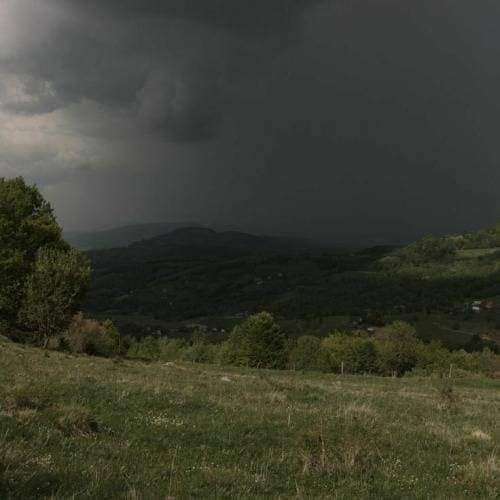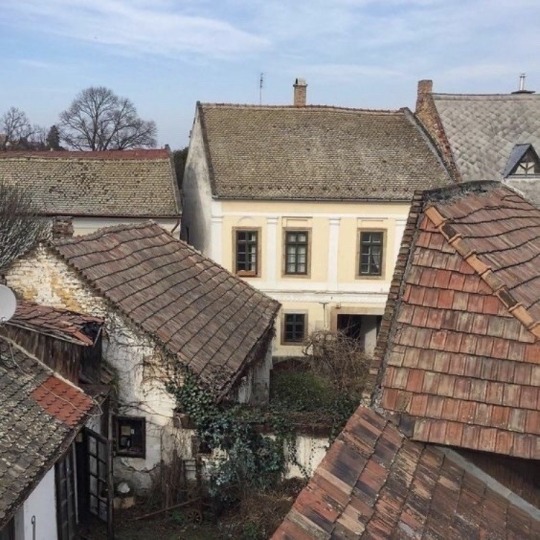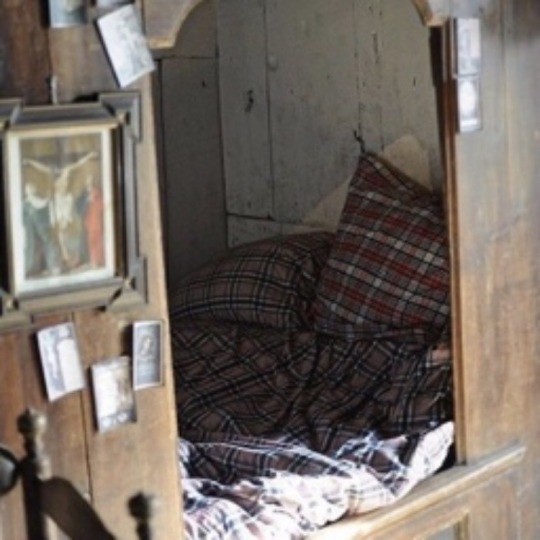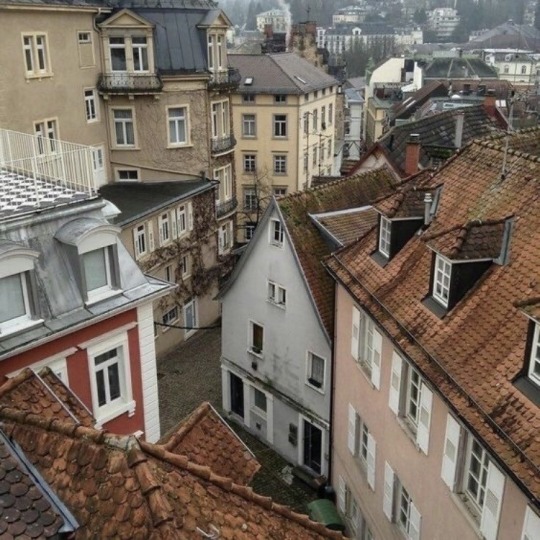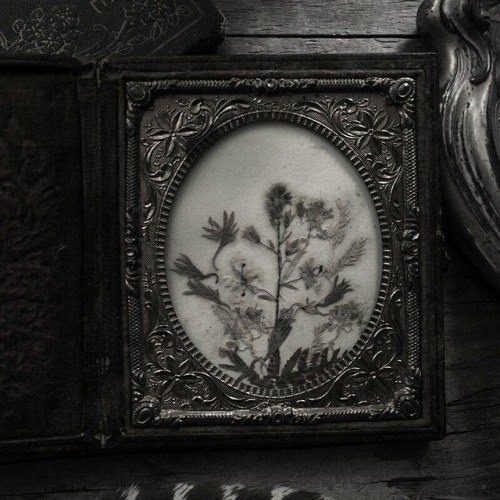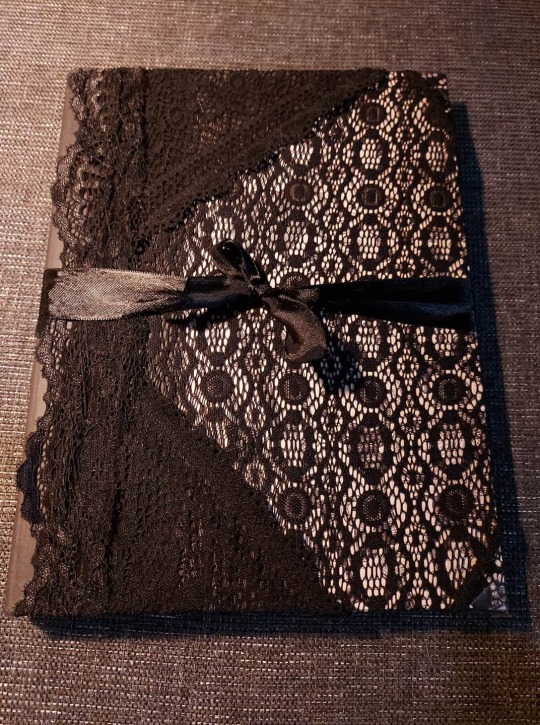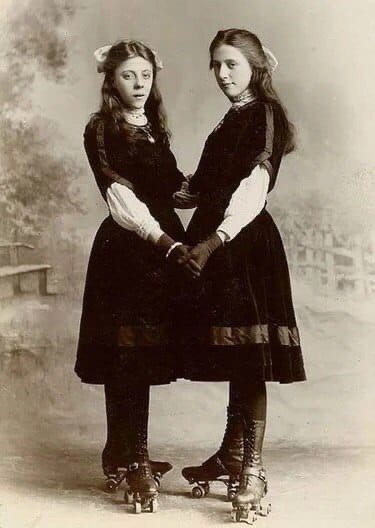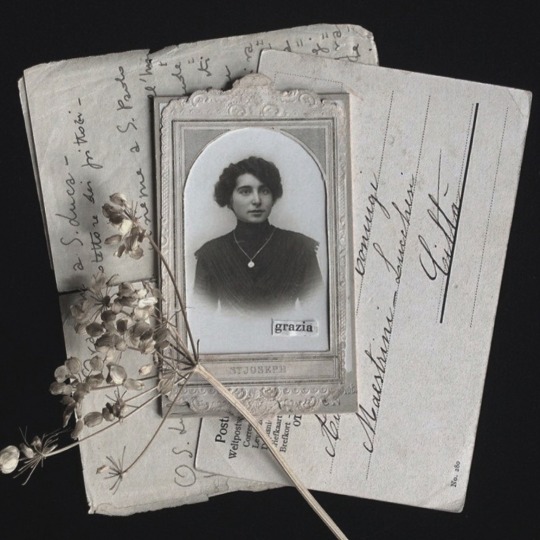🥀Author of #thebookofseances and #thebookofancestors🪦I create tools that help you communicate with spirits.👻Shop my tarot and oracle decks below.
Don't wanna be here? Send us removal request.
Text

🎄🪦21 Days of Yule: Day 09 — Oracle Garland🪦🎄 In the spirit of non-traditional Yule decorations, I wanted to share this oracle garland I created out of cards from the Memento Mori Oracle deck. Each one symbolizes a “wish” I have for 2024. If you want to make this but don’t want to punch holes in your decks (can’t blame you), try using clothespins instead.
1 note
·
View note
Text

The Book of Séances: A Guide to Divination and Speaking to Spirits
As long as people have lived, they have longed for wisdom and comfort from those who have died. In The Book of Séances, artist, author, and witch Claire Goodchild takes readers on a journey through the historical landscape of spiritualism and guides questers through safe practices for cultivating a connection with the other side.
The Book of Séances details the four types of spiritual encounters, teaches us how to protect ourselves, and breaks down the different tools -- from spirit boards and tarot to dominoes and charms -- that are essential for opening a bridge to the afterlife. Whether conducting solitary or group séances, this book offers a way to safely glimpse beyond the veil.
Through her evocative writing and singular art, Claire provides a comprehensive history of the séance, alongside an immersive guide to accessing and communing with the spirit world. The Book of Séances provides hauntingly lovely signposts into our own personal mythology as revealed through our conscious and unconscious lives.
11 notes
·
View notes
Text
𝗟𝘂𝗴𝗵 - 𝗧𝗵𝗲 𝗠𝗮𝘀𝘁𝗲𝗿 𝗼𝗳 𝗦𝗸𝗶𝗹𝗹𝘀

𓍊𓋼𓍊𓋼𓍊𓍊𓋼𓍊𓋼𓍊𓍊𓋼𓍊𓋼𓍊𓍊𓋼𓍊𓋼𓍊𓍊𓋼𓍊𓋼𓍊𓍊𓋼𓍊𓋼𓍊𓍊𓋼𓍊𓋼𓍊𓍊𓋼𓍊𓋼𓍊𓍊𓋼
Lugh was revered as a god of talent who distributed it, much like the Roman god Mercury. Lugh is the subject of countless inscriptions and statues, and Julius Caesar acknowledged the significance of this deity to the Celtic people. Lugh was regarded as a warrior even though he was not a war god in the same sense as the Roman Mars because battle prowess was highly regarded among the Celts. Lugh is known as sam ildanach in Ireland, which was never conquered by Roman forces, and this name denotes his multi-faceted skill set.
𓍊𓋼𓍊𓋼𓍊𓍊𓋼𓍊𓋼𓍊𓍊𓋼𓍊𓋼𓍊𓍊𓋼𓍊𓋼𓍊𓍊𓋼𓍊𓋼𓍊𓍊𓋼𓍊𓋼𓍊𓍊𓋼𓍊𓋼𓍊𓍊𓋼𓍊𓋼𓍊𓍊𓋼
𝗘𝗻𝘁𝗲𝗿𝗶𝗻𝗴 𝘁𝗵𝗲 𝗛𝗮𝗹𝗹𝘀 𝗼𝗳 𝗧𝗮𝗿𝗮
In one well-known legend, Lugh makes his way to Tara, the gathering place for Ireland's high kings. One blacksmith, one wheelwright, one bard, etc., is the only person with that skill who will be allowed entry, the door guard informs him. The guard interrupts Lugh as he lists all the wonderful things he is capable of doing by saying, "Sorry, we've got someone here who can do that." "Ah, but do you have anyone here who can do them ALL?" Lugh finally inquires. Lugh was finally granted access to Tara.
𓍊𓋼𓍊𓋼𓍊𓍊𓋼𓍊𓋼𓍊𓍊𓋼𓍊𓋼𓍊𓍊𓋼𓍊𓋼𓍊𓍊𓋼𓍊𓋼𓍊𓍊𓋼𓍊𓋼𓍊𓍊𓋼𓍊𓋼𓍊𓍊𓋼𓍊𓋼𓍊𓍊𓋼
𝗕𝗼𝗼𝗸 𝗼𝗳 𝗜𝗻𝘃𝗮𝘀𝗶𝗼𝗻𝘀
The Book of Invasions, which chronicles Ireland's numerous invasions by foreign foes, contains a significant portion of early Irish history. This history claims that Lugh was descended from a Fomorian, a monstrous race that opposed the Tuatha De Danann. Balor of the Evil Eye, Lugh's paternal grandfather, imprisoned his only daughter in a cave because he believed he would be killed by a grandson. She was seduced by a Tuatha, and as a result, she gave birth to triplets. Two of them were drowned by Balor, but Lugh lived and was raised by a blacksmith. Later, he led the Tuatha into battle, where he actually defeated Balor.
𓍊𓋼𓍊𓋼𓍊𓍊𓋼𓍊𓋼𓍊𓍊𓋼𓍊𓋼𓍊𓍊𓋼𓍊𓋼𓍊𓍊𓋼𓍊𓋼𓍊𓍊𓋼𓍊𓋼𓍊𓍊𓋼𓍊𓋼𓍊𓍊𓋼𓍊𓋼𓍊𓍊𓋼
𝗥𝗼𝗺𝗮𝗻 𝗜𝗻𝗳𝗹𝘂𝗲𝗻𝗰𝗲
According to Julius Caesar, the majority of cultures worship the same deities under various names. He lists the Gaulish popular deities in his essays on the Gallic War and uses what he believed to be the Roman names for each one. As a result, references to Mercury are actually attributed to Lugh, a god whom Caesar also calls Lugus. The hub of the worship for this deity was Lugundum, which is now Lyon, France. His festival, which took place on August 1, was the most significant holiday in all of Gaul and was chosen by Caesar's successor, Octavian Augustus Caesar, as the day of the Feast of Augustus.
𓍊𓋼𓍊𓋼𓍊𓍊𓋼𓍊𓋼𓍊𓍊𓋼𓍊𓋼𓍊𓍊𓋼𓍊𓋼𓍊𓍊𓋼𓍊𓋼𓍊𓍊𓋼𓍊𓋼𓍊𓍊𓋼𓍊𓋼𓍊𓍊𓋼𓍊𓋼𓍊𓍊𓋼
𝗪𝗮𝗿 𝗮𝗻𝗱 𝗪𝗲𝗮𝗽𝗼𝗻𝘀
Lugh was a renowned warrior, despite not being specifically a war god. One of his weapons was a powerful magic spear that was so bloodthirsty it frequently attempted to engage in combat on its own. In battle, the spear allegedly flashed fire and sliced untamed through the ranks of the enemy. When a thunderstorm approaches, locals in some parts of Ireland claim that Lugh and Balor are engaged in combat, giving Lugh yet another function as a storm god.
𓍊𓋼𓍊𓋼𓍊𓍊𓋼𓍊𓋼𓍊𓍊𓋼𓍊𓋼𓍊𓍊𓋼𓍊𓋼𓍊𓍊𓋼𓍊𓋼𓍊𓍊𓋼𓍊𓋼𓍊𓍊𓋼𓍊𓋼𓍊𓍊𓋼𓍊𓋼𓍊𓍊𓋼
𝗟𝘂𝗴𝗵'𝘀 𝗠𝗮𝗻𝘆 𝗔𝘀𝗽𝗲𝗰𝘁𝘀
Peter Beresford Ellis asserts that the Celts highly valued smithing. War was a way of life, and people believed that blacksmiths possessed magical abilities. After all, they were able to control the element of Fire and use their strength and expertise to shape the earth's metals. However, there is no mention of a Celtic counterpart to Vulcan, the Roman smith god, in Caesar's writings.
The smith, known as Goibhniu in early Irish mythology, works alongside two brothers to forge a triple god form. While the entire Tuatha De Danann host prepares for battle, the three craftsmen work on Lugh's behalf to create weapons and make repairs. The smith god is viewed as a master mason or a great builder in a later Irish tradition. According to some myths, Goibhniu, Lugh's uncle, protects him from Balor and the terrifying Formorians.
𓍊𓋼𓍊𓋼𓍊𓍊𓋼𓍊𓋼𓍊𓍊𓋼𓍊𓋼𓍊𓍊𓋼𓍊𓋼𓍊𓍊𓋼𓍊𓋼𓍊𓍊𓋼𓍊𓋼𓍊𓍊𓋼𓍊𓋼𓍊𓍊𓋼𓍊𓋼𓍊𓍊𓋼
𝗠𝗮𝗻𝘆 𝗡𝗮𝗺𝗲𝘀 𝗮𝗻𝗱 𝗙𝗮𝗰𝗲𝘀
The fact that each tribe had its own patron deity and that there might be gods associated with specific places or landmarks within a region contributed to the fact that the Celts had a large number of gods and goddesses. For instance, only the tribes that lived there might be aware of a god who guarded a specific river or mountain. Lugh was a fairly adaptable god who was revered by the Celts almost everywhere. The Irish Lugh, in turn, is connected to the Welsh Llew Llaw Gyffes through the Gaulish Lugos.
𓍊𓋼𓍊𓋼𓍊𓍊𓋼𓍊𓋼𓍊𓍊𓋼𓍊𓋼𓍊𓍊𓋼𓍊𓋼𓍊𓍊𓋼𓍊𓋼𓍊𓍊𓋼𓍊𓋼𓍊𓍊𓋼𓍊𓋼𓍊𓍊𓋼𓍊𓋼𓍊𓍊𓋼
𝗖𝗲𝗹𝗲𝗯𝗿𝗮𝘁𝗶𝗻𝗴 𝘁𝗵𝗲 𝗚𝗿𝗮𝗶𝗻 𝗛𝗮𝗿𝘃𝗲𝘀𝘁
According to The Book of Invasions, Lugh celebrated Tailtiu, his foster mother, with a harvest festival, which is how he came to be associated with grain in Celtic mythology. This day became August 1, and that time period corresponds with the start of the Northern Hemisphere's first grain harvest. In fact, lunasa is the Irish Gaelic word for August. Corn, grains, bread, and other harvest-related symbols are used to honor Lugh. This celebration was known as Lughnasadh. Later, the holiday was known as Lammas in Christian England, from the Saxon word "loaf mass" (hlaf maesse).
𓍊𓋼𓍊𓋼𓍊𓍊𓋼𓍊𓋼𓍊𓍊𓋼𓍊𓋼𓍊𓍊𓋼𓍊𓋼𓍊𓍊𓋼𓍊𓋼𓍊𓍊𓋼𓍊𓋼𓍊𓍊𓋼𓍊𓋼𓍊𓍊𓋼𓍊𓋼𓍊𓍊𓋼
𝗔𝗻𝗰𝗶𝗲𝗻𝘁 𝗠𝗲𝗲𝘁𝘀 𝗠𝗼𝗱𝗲𝗿𝗻
Lugh is revered by many Wiccans and Pagans as the protector of talent and abilities. When they need inspiration, many artists, musicians, bards, and crafters invoke Lugh. Lugh is still revered during harvest time today, not only as a god of grain but also as a god of storms in the late summer. Many people still celebrate Lughnasadh with dancing, music, and bonfires in Ireland today. This day has also been designated by the Catholic church for the ritual blessing of agricultural fields.
𓍊𓋼𓍊𓋼𓍊𓍊𓋼𓍊𓋼𓍊𓍊𓋼𓍊𓋼𓍊𓍊𓋼𓍊𓋼𓍊𓍊𓋼𓍊𓋼𓍊𓍊𓋼𓍊𓋼𓍊𓍊𓋼𓍊𓋼𓍊𓍊𓋼𓍊𓋼𓍊𓍊𓋼
That's all I have for a quick run down on the deity Lugh. Thank you for reading! Stay tuned for the next addition of the Lammas Celebration series. Fair Winds ♡
88 notes
·
View notes
Text
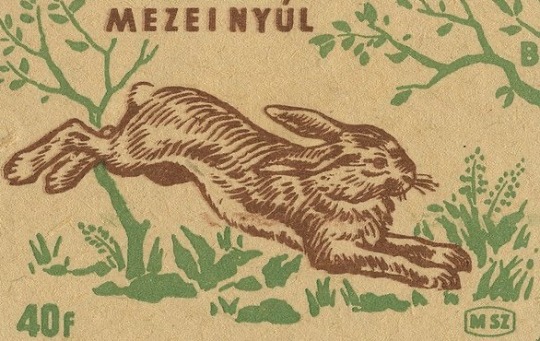
THE HARE 𖦹⋆ ༘
𓃹 Associated with moon deities.
𓃹 Served as an attribute of Aphrodite and a gift between lovers.
𓃹 Symbols of sensuality and/or fertility.
𓃹The hare brings new beginnings, new birth, rebirth, bringing together the power of three, the past, present and future.
𓃹 In late antiquity, used as a symbol of good luck and in connection with ancient burial.
𓃹 The Celts associated the hare with the full moon, night and anything super natural (the gestation period for the hare is 28 days, the same as the moon).
𓃹 Linked with trickery and fraud.
𓃹 The hare is said to live in both worlds and was held in high regard by our ancient ancestors.
𓃹The symbol of three hares with their ears touching can be seen at many sacred sites, symbolising life, the circle of life and changing seasons of the year. The three ears interlocking has a similarity with the triqueta, the sign for everlasting love. The power of three represents the land, sea and sky; maiden, mother, crone; mind, body spirit;
341 notes
·
View notes
Text
𝗟𝗲𝗴𝗲𝗻𝗱𝘀 𝗮𝗻𝗱 𝗟𝗼𝗿𝗲 𝗼𝗳 𝗟𝗮𝗺𝗺𝗮𝘀

𓍊𓋼𓍊𓋼𓍊𓍊𓋼𓍊𓋼𓍊𓍊𓋼𓍊𓋼𓍊𓍊𓋼𓍊𓋼𓍊𓍊𓋼𓍊𓋼𓍊𓍊𓋼𓍊𓋼𓍊𓍊𓋼𓍊𓋼𓍊𓍊𓋼𓍊𓋼𓍊𓍊𓋼
There are quite a bit of myths surrounding Lammas, or Lughnasadh. This post is intended to briefly paraphrase some of them. I thoroughly enjoyed researching and creating this post. I hope you all enjoy it just as much as I did!
𓍊𓋼𓍊𓋼𓍊𓍊𓋼𓍊𓋼𓍊����𓋼𓍊𓋼𓍊𓍊𓋼𓍊𓋼𓍊𓍊𓋼𓍊𓋼𓍊𓍊𓋼𓍊𓋼𓍊𓍊𓋼𓍊𓋼𓍊𓍊𓋼𓍊𓋼𓍊𓍊𓋼
Sif, the wife of Thor, had lovely golden hair up until Loki the joker chopped it off. Thor was so furious that he wanted to kill Loki, but some dwarves gave Sif new hair, and the moment it touched her head, began to magically grow. The harvest and the golden grain that grows each year are connected to Sif's hair.
𓍊𓋼𓍊𓋼𓍊𓍊𓋼𓍊𓋼𓍊𓍊𓋼𓍊𓋼𓍊𓍊𓋼𓍊𓋼𓍊𓍊𓋼𓍊𓋼𓍊𓍊𓋼𓍊𓋼𓍊𓍊𓋼𓍊𓋼𓍊𓍊𓋼𓍊𓋼𓍊𓍊𓋼
Farmers in the Shetland Islands thought grain harvesting should only occur during a waning moon. They also held this view regarding the harvest of potatoes in the fall and peat cutting.
𓍊𓋼𓍊𓋼𓍊𓍊𓋼𓍊𓋼𓍊𓍊𓋼𓍊𓋼𓍊𓍊𓋼𓍊𓋼𓍊𓍊𓋼𓍊𓋼𓍊𓍊𓋼𓍊𓋼𓍊𓍊𓋼𓍊𓋼𓍊𓍊𓋼𓍊𓋼𓍊𓍊𓋼
Calves are weaned at Lughnasadh, and the first fruits like apples and grapes are ripe. Farmers were reportedly required to wait until Lughnasadh to begin harvesting these fruits in some Irish counties, according to the folklore.
𓍊𓋼𓍊𓋼𓍊𓍊𓋼𓍊𓋼𓍊𓍊𓋼𓍊𓋼𓍊𓍊𓋼𓍊𓋼𓍊𓍊𓋼𓍊𓋼𓍊𓍊𓋼𓍊𓋼𓍊𓍊𓋼𓍊𓋼𓍊𓍊𓋼𓍊𓋼𓍊𓍊𓋼
Lammas is a time for warrior games and fictitious battles in some cultures. This may be reminiscent of the past, when there would be a harvest festival and people would travel great distances to attend. What better way for young men to impress the girls and display their strength than to smash all the opposition? Lugh, the powerful Celtic craftsman god, is also celebrated with games and competitions where artisans display their best creations.
𓍊𓋼𓍊𓋼𓍊𓍊𓋼𓍊𓋼𓍊𓍊𓋼𓍊𓋼𓍊𓍊𓋼𓍊𓋼𓍊𓍊𓋼𓍊𓋼𓍊𓍊𓋼𓍊𓋼𓍊𓍊𓋼𓍊𓋼𓍊𓍊𓋼𓍊𓋼𓍊𓍊𓋼
Giving someone a pair of gloves as a gift during Lammastide has become tradition. It has to do with an old custom whereby landowners would give their tenants a pair of gloves following the harvest, as well as the fact that winter is just around the corner. The glove is a representation of power and kindness.
𓍊𓋼𓍊𓋼𓍊𓍊𓋼𓍊𓋼𓍊𓍊𓋼𓍊𓋼𓍊𓍊𓋼𓍊𓋼𓍊𓍊𓋼𓍊𓋼𓍊𓍊𓋼𓍊𓋼𓍊𓍊𓋼𓍊𓋼𓍊𓍊𓋼𓍊𓋼𓍊𓍊𓋼
That's all for the Legends and Lore for Lammas. I hope you found this as interesting as I did! Let me know what you think of the folklore that stands behind the Sabbat. Stay Tuned for the next addition of the Lammas Celebration series. Fair Winds ♡
176 notes
·
View notes
Text

Demonology and Witchcraft by Walter Scott, 1830.
658 notes
·
View notes
Text


Because I could not stop for Death –. He kindly stopped for me –. The Carriage held but just Ourselves –. And Immortality.
Ancestors and Widow & Widower.
3 notes
·
View notes
Text

🥀🪦The Ancestors and Advisors Expansion Pack for the Memento Mori Oracle returns August 7th! Make sure you grab yours before Samhain 🪦🥀.
.
.
2 notes
·
View notes
